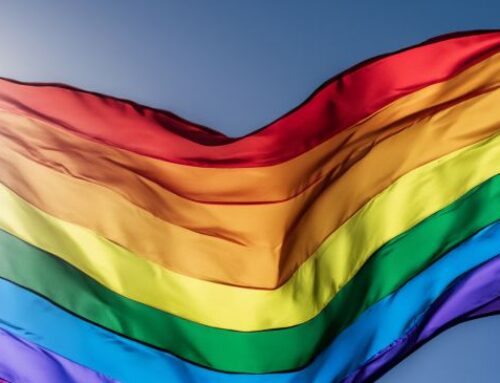While the great majority of Canadians have been outraged by the declaration by the British Columbia Court of Appeal that sexual perverts have a constitutional right to possess child pornography, most judges and law professors hold that there is no principled basis for maintaining that the state should prevent people from reading or viewing pornography in the privacy of their own home.
David A. J. Richards subscribes to this view. He is the Edwin Webb Professor of Law at New York University, a self-identified gay man and one of the most prominent professors of constitutional law in the United States. In his book, The Moral Criticism of Law, he celebrates adult pornography as, “the unique medium of a vision of sexuality, a ‘pornotopia,’ a view of sensual delight in the erotic celebration of the body, a concept of easy freedom without consequences, a fantasy of timelessly repetitive indulgence.”
Granted, even among law professors, this is an extreme position. Most still subscribe to the conventional understanding that pornography is vile and disgusting, yet, like Richards, they maintain that freedom of thought, belief, opinion and expression includes the right of any adult to possess, if not to produce or sell, the most revolting pornography.
Even the courts have endorsed this notion. In Irwin Toy (1989), the Supreme Court of Canada contended that, “Freedom of expression was entrenched in our Constitution . so as to ensure that everyone can manifest their thoughts, opinions, beliefs, indeed all expressions of the heart and mind, however unpopular, distasteful or contrary to the mainstream. Such protection is ‘fundamental’ because in a free, pluralistic and democratic society we prize a diversity of ideas and opinions for their inherent value both to the community and to the individual.”
What is the “inherent value” of pornography? Why should we prize the distasteful material seized from John Ronald Sharpe, the 65-year-old Surrey man charged with violating the ban on the possession of child pornography in the Criminal Code? According to court records, his collection of child pornography included many photographs “of nude boys displaying their genitals or anal regions” and “a sketch of a nude boy obviously under the age of 18 (and probably under the age of 14) with an erect penis.”
There is nothing in the legislative record to indicate that Parliament and the provincial legislatures intended to protect such depraved expression, by entrenching the Charter of Rights and Freedoms in the Constitution. Yet, in R. v. Butler (1992), the Supreme Court of Canada declared that every restriction on pornography in the Criminal Code violates freedom of expression as guaranteed in Section 2 of the Charter.
In contrast, the United States Supreme Court has always maintained that protection for freedom of speech and the press in the United States bill of Rights does not apply to obscenity any more than to defamation or incitement to violence. Surely, similar, common-sense exemptions should apply to Section 2 of the Charter.
As it is, even the Crown conceded in the Sharpe case that the accused had a right under Section 2 of the Charter to possess child pornography, but also insisted that Parliament had authority under Section 1 to limit that right by outlawing the possession of child pornography. However, both the trial court and the British Columbia Court of Appeal rejected this argument on grounds that in banning possession, Parliament had limited freedom of expression to an extent that cannot be demonstrably justified in a free and democratic society.
“If the law supposes that,” said Mr. Bumble, “the law is a ass – a idiot.” Even law professors and judges should understand that no one in any society has a right to possess pornography.
This is not to suggest that Parliament has a right and a moral duty to enact a law banning all forms of pornography. That would be foolish. Such a law would not only be unenforceable in our society, but also inhibit legitimate forms of expression.
In contrast, the existing restrictions on pornography in the Criminal Code are prudently restrained. If the Supreme Court of Canada does not uphold the carefully defined ban on child pornography, Parliament should simply re-enact the law and invoke its constitutional authority to make sure the law prevails, notwithstanding moral confusion in the courts.




